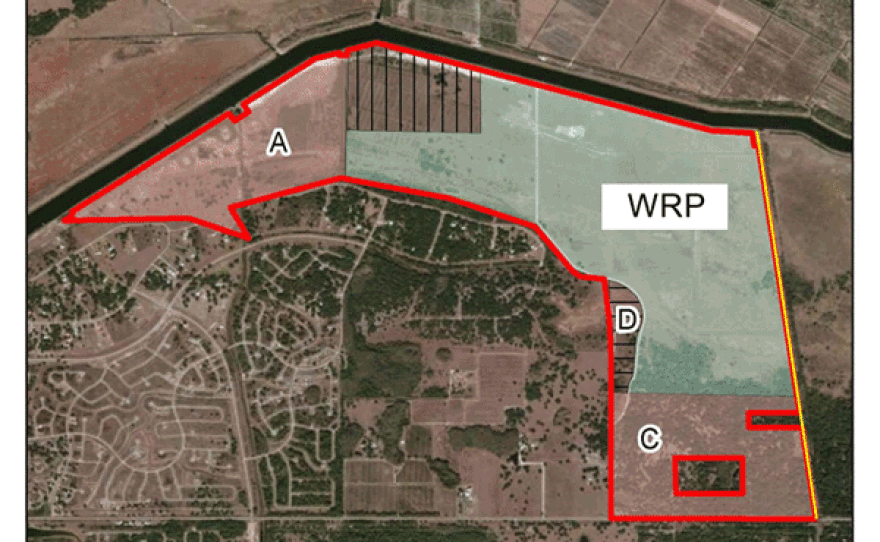Several government agencies have banded together with groups as diverse as the Nature Conservancy and Wal-Mart to help protect the Florida Panther.
A deal has been closed to protect 1,278 acres on prime panther habitat along the south shore of the Caloosahatchee River. That's considered the dividing line between the Everglades and Big Cypress - where almost all the panthers live - and the rest of Florida.
Shelly Lakly, executive director of The Nature Conservancy's Florida division, says it was a deal 10 years in the making - and it was done one day before the property was to go into foreclosure.
She says the property is considered critical as the numbers of panthers rebound south of the Caloosahatchee - and females begin crossing north of the river once again.
To hear Lakly explain the deal and its importance to the Florida panther with WUSF's Steve Newborn, click on the "Listen" icon above.
Here's the news release issued on the deal:
A large and continuous piece of land critical for wildlife passage and the natural recovery of the Florida panther was purchased and protected by a collaborative public and private partnership in an outstanding effort to accomplish species conservation.
The conservation easements established on the 1,278-acre American Prime property along the Caloosahatchee River in Glades County is a key natural landscape through which Florida panthers can disperse from habitats farther south. This acquisition required a sequence of events involving multiple agencies and was accomplished just in time to prevent the land from going to foreclosure auction.
Protecting this land was made possible through the cooperative efforts of several partners including The Nature Conservancy (TNC), the U.S. Fish and Wildlife Service (USFWS), the Department of Agriculture’s Natural Resources Conservation Service (NRCS), The National Fish and Wildlife Foundation (NFWF), Walmart, the U.S. Army Corps of Engineers and others. A portion of the protected land will continue in the rich ranching heritage of South Florida and another portion will have its wetlands restored to enhance wildlife habitat.
The purchase was covered by approximately $2 million from TNC in private philanthropy, and $1.5 million each from the USFWS and the private entity that purchased the property encumbered by conservation easements. NRCS provided $1.5 million to purchase a conservation easement on 718 acres of the property. Another $200,000 was provided through Acres for America, a partnership between the National Fish and Wildlife Foundation (NFWF) and Walmart.
TNC collected the funding from the various sources and used those funds to buy the property. TNC also managed the transaction to closing and transferred the property to a private entity subject to a Wetland Reserve Program easement held by NRCS and conservation easements reserved by TNC over the balance of the property.
The new owner, Lone Ranger LLC, will utilize the property in accordance with the conservation easements secured in the transaction. The Nature Conservancy and NRCS will manage the easements. This acquisition will encourage the natural recovery of the Florida panther population by providing habitat where animals can den and stalk prey, and migrate from southern Florida to areas north of the river. Other species will benefit as well.
Through the Wetlands Reserve Program (WRP) conservation easement, NRCS purchased the development rights to the property, saving the land from any future urban development. Completion of the restoration project will bring back the natural functions of the wetland to recharge groundwater, reduce flooding and protect biological diversity. The WRP program provides advice and funding to help landowners restore wetlands, establish long-term conservation actions and improve wildlife habitat on the land.
In addition to providing funds through the Recovery Land Acquisition Program, the USFWS provided technical assistance regarding the Florida panther and other federally listed species.
The U.S. Army Corps of Engineers helped facilitate this transaction by relocating two 50-acre disposal easements along the waterfront of the American Prime property.





